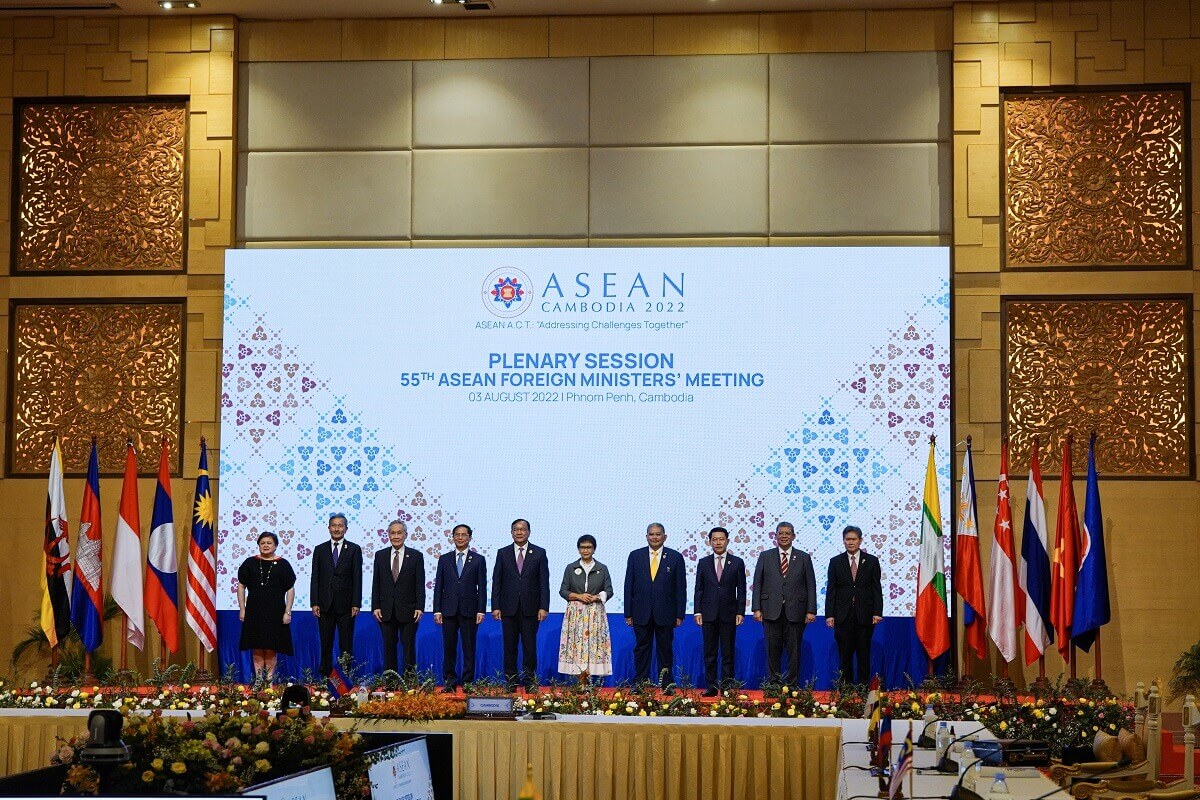During the 55th Foreign Ministers’ Meeting of the Association of Southeast Asian Nations (ASEAN) on Wednesday and Thursday, leaders expressed disappointment at the lack of progress made by Myanmar on the five-point consensus.
In a joint statement, the Foreign Ministers (FMs) of member nations said that they had “extensively discussed the recent developments in Myanmar” during the meeting in Phnom Penh, wherein they expressed their concern over the country’s “prolonged political crisis,” pointing to the recent execution of four pro-democracy activists.
In this regard, the FMs said they are “deeply disappointed by the limited progress and lack of commitment” by the military junta to implement the Five-Point Consensus they agreed upon last April.
ASEAN "deeply disappointed" by limited progress made by Myanmar's junta in implementing a peace agreement to end conflict in country – Southeast Asia's regional bloc pic.twitter.com/wF2aEHkkqB
— TRT World Now (@TRTWorldNow) August 5, 2022
The leaders emphasised on the need for “peace and stability in the region” and expressed the bloc’s “readiness to assist Myanmar in a positive, peaceful, and constructive manner” To this end, the FMs agreed that the Association’s special envoy to Myanmar, Prak Sokhonn, must push Myanmar authorities to ensure reform. Furthermore, they welcomed the efforts made by Cambodia, the group’s current chair, to “help address the situation,” including visits by Cambodian diplomats to Myanmar.
In particular, they stressed on the need for the bloc to increase humanitarian assistance as well as “facilitate the repatriation process and promote sustainable development,” with a focus on the volatile Rakhine state, where they said authorities must ensure “reconciliation among the various communities,” provide basic services, and promote new job opportunities. Leaders also agreed to work towards the “voluntary return” of Rohingya migrants from Bangladesh, which currently houses over 1 million Rohingya refugees.
#AMM55’s joint communiqué on #Myanmar post-coup crisis. It echoed the bloc’s & the chair’s deep disappointment at the #Tatmadaw execution of political activists, recommending #Asean leaders to “assess” the junta’s implementation of 5PCs while mentioning ASEAN Charter Article 20. pic.twitter.com/HwXcwl0pFc
— Chhengpor Aun (@aunchhengpor) August 5, 2022
The statement from ASEAN comes after Myanmar’s junta government last week defended executing political activists for “aiding terror acts.” This marked the country’s first executions in decades. The military has dismissed the severe international condemnation that followed, with its spokesperson, Zaw Min Tun, saying even the death penalty “was not enough to punish their heinous crimes.” He added that the junta government was aware that the act would invite international criticism, but the executions were “an act of justice.”
The country was not represented at the latest ASEAN meeting after its military rulers declined the group’s proposal to send a non-junta representative. Since last year, ASEAN has banned political representatives from representing Myanmar at the group’s meetings due to the lack of progress made by the junta in implementing the five-point peace roadmap it agreed to last April.
In other recent developments in the country, Amnesty International said in July that the Myanmar military’s use of antipersonnel landmines amounts to war crimes. The organisation argued that antipersonnel landmines were “inherently indiscriminate” and stated that their use is a violation of international law. International humanitarian law, as well as the 1997 Mine Ban Treaty, to which 164 states are party, prohibits the use of antipersonnel landmines. According to Landmine Monitor, the Myanmar military is “the only state armed forces confirmed to have used antipersonnel landmines” over the past year.
Moreover, the military government announced last week that it has further extended the country’s state of emergency till February 2023, as it needs additional time to achieve political stability and prepare for elections.
Since the coup last February, it is estimated that more than 2,000 people have been killed, 14,000 arrested, and over 700,000 displaced. Meanwhile, ousted democratic leader Aung San Suu Kyi currently faces nearly a dozen cases that carry a combined maximum sentence of more than 100 years in prison.

